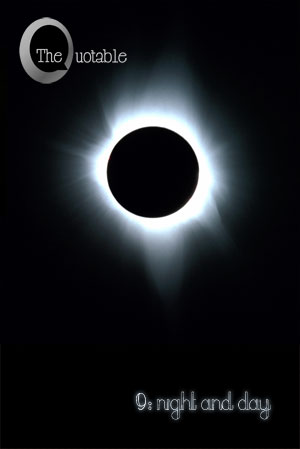These were the nights when Ruby would stay up with him, sitting by the window and sipping Nestle hot cocoa with mini-marshmallows as they watched the snowstorm. She would ask questions like how gumball machines work and why crossbills have twisted lips. “Are they making funny faces at us, Daddy?” When she was halfway done with her cocoa he always got up and went back into the kitchen to give her the mini-marshmallows he’d taken out of his own packet and saved for her.
Almost every spring the Finger Lakes had a storm like this. Every May, just when everything was blooming, a blizzard would materialize out of nowhere and drop six inches of snow. The grosbeaks and orioles had returned to the feeders. A great blue heron family nested at the edge of the pond in their yard for the third straight year.
He separated his mini-marshmallows from the powder and poured out the contents of the packet, then dropped the mini-marshmallows in a tiny little blue bowl on the counter. “They look like clouds, Daddy,” she’d said the first time he put the marshmallows in that bowl. When the mix was hot he poured it in his mug and sat by the window. He flipped on the backyard light and could see all the way to the pond in the darkness. Sipping his cocoa, he could tell there was something there, by the edge of the water, a dark form covered in the snow. He grabbed his binoculars.
A heron, the male, sat on the nest during the storm. Powder covered half its body and piled onto its remaining breeding plumes. It tucked its head tightly against its body. Some primaries remained visible.
He kept watching, sipping his cocoa. When he finished the mug, the microwave clock showed an hour had passed. He could still see the primaries, although less. Snow had begun building up around the heron’s bill. Incredible how it stayed on the nest. He wanted to show somebody this heron, out in the storm, what a thing it was.
She must be big now. Every time he saw her she was so much bigger. He had visitation rights, but she was all the way in the city and he didn’t have the money to get to her. In a corner on the table with all the mail he barely looked through anymore sat the foreclosure letter, too heavy to lift.
He looked through his binoculars. The heron was still out there, shivering only slightly. The snow had gotten higher, covering up most of the primaries, almost a third the way up its bill. The soggy tuft of feathers on its crown drooped down the side of its face. Its eyes were closing halfway and opening. He rocked back against the chair, but it was too small for him to rest his head so he leaned forward against the glass. He was above the lakes then, behind a flock of crossbills, trailing and slowly losing sight of them, flying out of and into clouds, until his arms twisted against his body and he felt his stomach rising toward his throat and he smacked his head against the windowpane.
It was still there, back buried, primaries gone, the bill more than halfway covered. The whole bird was just a sliver of gray against the white. Through his binoculars, he could make out its eye, a portion of its face, the base of the bill. It was a house covered in snow. It was the warmth, the safety. If it froze, the eggs would too.
He put down his binoculars and stared at this bird in a blizzard outside his window. He fell in and out of sleep, drifting, straining to stay awake. He paced around the room to wake himself then sat down and swore it wouldn’t matter if he rested against the glass, although each time he checked the clock it was forty-five minutes later, or an hour and fifteen, or two. And there were crossbills, clouds, falling, cold.
And there was morning, the golden sun reaching over the white horizon. Water droplets fell from the roof. The heron rose, stretched out its massive wings and began pounding them against the snow, clearing an area around the nest, catapulting powder ten feet high as if it were nothing and with each wingstroke lifting itself higher into the air as tears burst from his eyes.
Frank Izaguirre teaches creative nonfiction and environmental literature. His essays have been published in Fourth Genre, Terrain, and ISLE. This is his first published story. He’s an avid birder and cares deeply about bird conservation.










